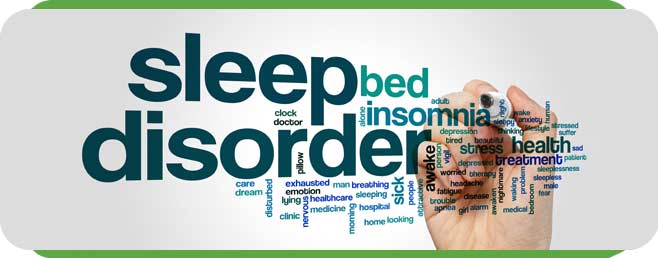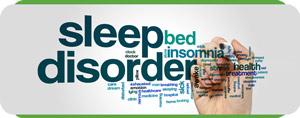Non-24-Hour Sleep-Wake Disorder Symptoms
Non-24-Hour Sleep-Wake Disorder seems harmless at the beginning but it causes a deep impact on your health and life. But don’t worry, the treatment is available at Koala® Center For Sleep & TMJ Disorders. For more information call us at one of our clinics today or request an appointment online. We serve patients from all over the USA. Locations in Bloomington, IL, Peoria – Dunlap, IL, Mishawaka, IN, El Paso, TX and Wausau, WI.




Table of Contents:
What is Non-24-Hour Sleep-Wake Disorder?
What are the symptoms of non-24?
How do you diagnose non-24?
How do you treat non-24-hour sleep disorders?
Thanks to an internal biological clock known as the circadian rhythm, most people get tired and wake up at around the same time every day. However, a non-24-hour sleep-wake disorder is a sleep disorder that does not fit in with this 24-hour biological clock. Instead, people with this disorder may find that they do not get tired at the same time every evening, but instead, get tired a few hours later. This circadian rhythm disorder occurs because our natural biological clocks are not synchronized with light and dark cycles of the day and night.
Non-24-hour sleep-wake disorder, sometimes abbreviated as N24SWD, is a sleep disorder characterized by a circadian rhythm that is shorter or longer than 24 hours. In most cases of people with N24SWD, their circadian rhythm is longer than 24 hours. This causes sleep and wake times to get pushed continuously earlier or later, usually by a few hours at a time. Over days or weeks, the circadian rhythm becomes desynchronized from regular daylight hours and can see drastic changes, such as going to bed at 11 PM, then 1 AM, then 3 AM, and so on. This can lead to reversed sleep-wake cycles.
Individuals with N24SWD experience inappropriate fluctuations in appetite, mood, and alertness as a consequence of this ever-shifting rhythm. During periods when their body clock is heavily desynchronized, they show a natural preference for sleeping in the middle of the day and difficulty sleeping at night, but this can all change in several weeks as their internal clock catches up with daylight once again.
Even when supplemented by common solutions such as caffeine, attempts to maintain a regular sleep-wake cycle are unsuccessful. Over the long term, desynchronization from the innate circadian rhythm may have adverse health consequences that can negatively affect several areas of health.
Individuals with non-24-hour sleep-wake disorder often have difficulty keeping work, school, or social commitments and they may also develop depression due to the stress of not being able to keep a normal schedule. Depression may also develop as a side effect of sleeping during the day and not getting enough vitamin D from natural sunlight.
Symptoms of non-24-hour sleep-wake disorder are as follows:
– Trouble falling asleep or staying asleep
– Waking up groggy or not feeling well-rested
– Sleeping during the day
– Falling asleep unexpectedly
– Difficulties functioning at work or at school
– Sleep patterns that differ from most others
– Difficulties concentrating
– Strained personal relationships
– Irritability due to sleep deprivation
– Sluggishness and forgetfulness
– Times of tiredness seem to shift over time
– Fighting to stay awake during the day
– Frustration that stems from others not understanding what is going on
Individuals with non-24-hour sleep-wake disorder may also feel like they are in a never-ending battle between sleeplessness and exhaustion.
Without several weeks of documenting sleep, the disorder can be difficult to diagnose since the symptoms of N24SWD come and go. The diagnosis of N24SWD requires:
– Difficulty falling asleep or waking up
– A progressive delay in the sleep phase
– An inability to adjust to a regular 24-hour day for longer than six weeks
To assist with a diagnosis, doctors might also ask patients to keep track of their own sleep using a sleep log or sleep journal. Doctors might also order an overnight sleep study or polysomnography. In cases where polysomnography is used, it cannot measure changes in sleeping habits over time, so its main purpose is to rule out other sleep disorders.
Treating non-24-hour sleep-wake disorders can be challenging, although certain treatments have found some success. In most cases, the treatment is unique to each patient, as everyone responds differently. One of the main methods of treatment involves adhering to sleep hygiene rules, including avoiding screen time before bed, limiting naps, and getting regular exercise. Natural supplements may also be recommended, although these have been shown to produce short-term results in most cases.
At Koala® Center For Sleep & TMJ Disorders, we care about the quality of your sleep and strive to help you resolve any sleep-related disorders that prevent you from getting a good night’s rest. To provide care for as many people as possible, Koala® Center For Sleep & TMJ Disorders has convenient locations near you in Bloomington, IL; Peoria – Dunlop, IL; Wausau, WI; and El Paso, TX. To find out which Koala® Center For Sleep & TMJ Disorders is closest to you, visit our Locations page! We look forward to serving you!

Additional Services You May Need
▸ KoalaKIDZzz®
▸ Sleep Apnea
▸ Snoring
▸ TMJ Disorder
▸ Fatigue
▸ Sleep Disorders
▸ Weight Loss
▸ CPAP Alternative
▸ Oral Appliances




